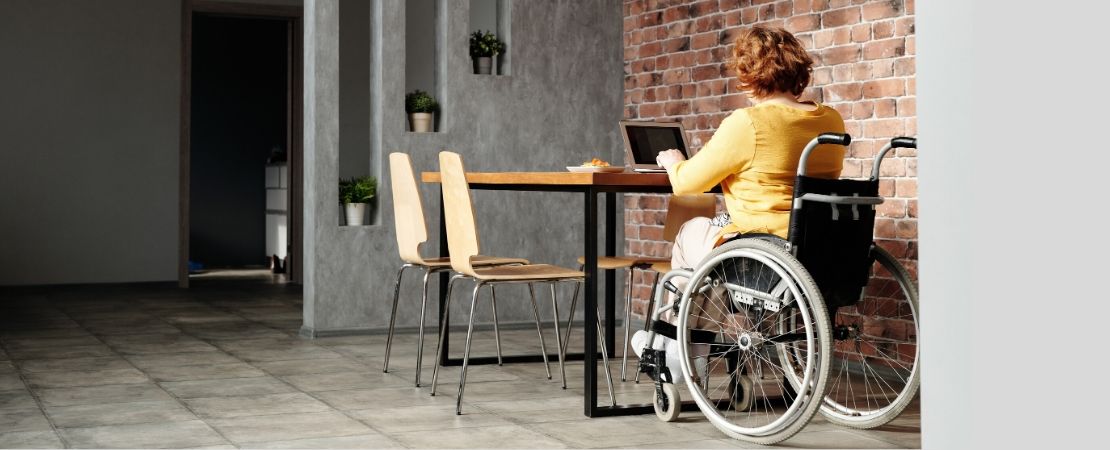Photo by Marcus Aurelius from Pexels
The Directorate of Higher Education of the Ministry of Education and Culture of the Republic of Indonesia (Kemendikbud) published the ‘Online Learning Guidelines for Students with Physical Disabilities’ and ‘Online Learning Guidelines for Blind Students’. These guidelines were developed by a team consist of people with disabilities, researchers and advocates of disability rights from the Australia-Indonesia Disability Research and Advocacy Network (AIDRAN), La Trobe University, and Center for Disability Studies and Services of Brawijaya University with the support of Knowledge Sector Initiative (KSI).
"We would like to express our utmost appreciation for the team’s hard work in developing these guidelines," said Acting Director General of Higher Education Kemendikbud Nizam in his forewords contained at the opening part of these two guidelines.
The ‘Online Learning Guidelines for Students with Physical Disabilities’ discusses the learning condition of students with disabilities during the pandemic. The first step is usually to identify the types of physical disabilities, obstacles they encounter and the solutions to address these problems.
For example, students with neuromotor problems will face obstacles in taking notes during lectures and they become exhausted easily. In the guidelines, a solution is offered to these students: they need to record the lectures so they can listen to these lectures again and learn according to their pace and capacity. Lecturers are also expected to dedicate a certain amount of time for a question and answer session with students with this condition.
This guideline also helps lecturers to design teaching strategies that are more accessible and conducive for students with physical disabilities. Two design concepts can be applied by lecturers. The first is the Universal Design Learning, which consitutes a curriculum design that increases flexibility and minimizes barriers for students with disabilities (Rose and Mayer, 2002).
The second is the Differentiated Instructional Strategies or teaching theories that provide a variety of instructional approaches that are designed to adjust with the characteristics of students (Tomlison, 2001). These characteristics include students’s preparedness and competence, talents and interests, learning styles, and prior knowledge.
On the other hand, the 'Online Learning Guidelines for Blind Students ' discusses the obstacles faced by lecturers and students, including how to identify accommodations for blind students when lectures are provided online. Some applications and features such as Google Classroom, Voice Over, Magnification Gesture, etc., have been recommended to be used during online learning.
The guideline also provides recommendations for lecturers teaching blind students, such as to conduct needs and accommodation assessments before class begins. Lecturers are expected to develop learning material and to ensure that classes are accessible for students with visual impairment.
The recommendations contained in the guideline includes the administration of online exams or evaluations, thesis writing or final assignments support, and the implementation of thesis defense hearing and internships. Paramount is the provision of accessible accommodation and assistance for blind students.
The ‘Online Learning Guidelines for Students with Physical Disabilities’ and the ‘Online Learning Guidelines for Blind Students’ are the result of a collaboration between research institutions, as centers for knowledge and the Government of Indonesia, as the center for policies. This collaboration has led to better development policies, which are informed by research, data and analysis.
KSI provides support to AIDRAN to expand and strengthen its network with researchers, advocates and policy makers who work with disability issues as well as with the general public. This is to ensure that effective exchange of knowledge, interaction and collaboration between disability researchers, advocates and policy makers, about effective approaches and good practices for promoting disability-inclusive policies and practices can work well. The activities and studies which have been implemented so far are expected to inform disability-inclusive policy making and administration of learning at universities.
In response to the current pandemic, AIDRAN also uses their social media to distribute information about Covid-19 to the members of their network, the general public and especially to people with disabilities.






